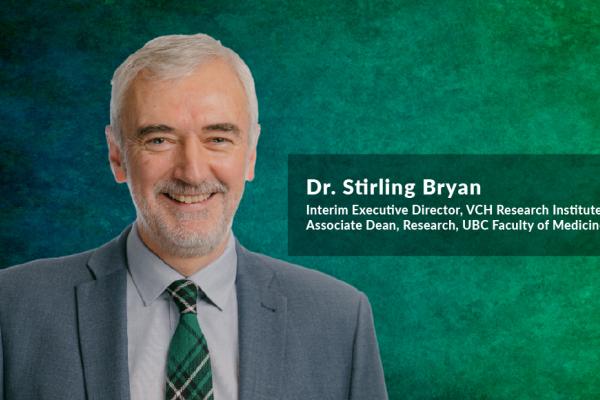
Collaboration accelerates gynecologic cancer research efforts.
With current mortality rates ranging from 16 per cent for uterine cancer to 64 per cent for ovarian cancer, more than 3,600 women die from gynecologic cancers each year in Canada. And while the teams from VGH & UBC Hospital, BC Cancer, OVCARE, BC Women's Hospital and Health Centre, Women's Health Research Institute and the Faculty of Medicine at the University of British Columbia are at forefront of discovery when it comes to ovarian, uterine, vaginal, vulvar and cervical cancers, they now plan to accelerate their research efforts by combining resources in a “supercluster” of knowledge sharing.
The newly-formed Gynecologic Cancer Initiative (GCI) has set itself two ambitious goals for the next 15 years:
- to reduce the incidence and mortality of gynecologic cancers by 50 per cent in BC; and
- to raise $100 million dollars for targeted research.
Nancy McKinstry, a skilled corporate strategist in BC’s financial sector, has volunteered to coordinate strategy for the GCI. Having served as a director, a board chair and a vice-president in a variety of organizations from universities to financial institutions, McKinstry brings a wealth of experience to the table.
Perhaps more importantly, McKinstry brings a patient’s perspective to the role. “I was diagnosed with ovarian cancer at Vancouver General Hospital in 2005. I had my surgery, my chemotherapy and my radiation there. As a survivor of ovarian cancer, I feel my involvement in this initiative is a way to give back.”
While she survived her ovarian cancer, McKinstry lost three friends to the disease. So, volunteering her time to help the GCI bring down mortality rates is personal for her. “It was a no-brainer for me to say yes when I was asked to help out," says McKinstry. "My role is strategic, and it’s governance. Coming from the outside, I am looking at the big picture. I don’t see any boundaries.”

“We have all these different groups doing incredible work, and I’m here to find ways we can collaborate and communicate more effectively. All this knowledge has been within each institution, but it’s often not shared as broadly as it could be.” By sharing knowledge, McKinstry notes, researchers in one area of gynecologic research can leave breadcrumbs on the path for others.
"The current advances in technology and recent successes have created an unprecedented opportunity to collaborate across research areas to maximize resources, cut costs and share ideas and talent," says McKinstry.
A path for community and donor participation
McKinstry hopes her deep ties to BC’s corporate sector and community organizations will help support existing hospital foundations make connections with individual donors and corporations. But she says to leverage funding, the GCI must clearly show potential donors where the money will be spent and what it will help accomplish.
“We’ve done a complete analysis and inventory of projects that are underway and how much money is earmarked for each one. We’ve been able to describe our priorities and identify new opportunities. I’m happy to report that we already have $33 million—plus an additional $10 million grant from the Federal government—committed.” McKinstry says with community support, the funding goal of $100 million could be met within five, not fifteen years.
"We’re setting clear goals for the next five years – putting them down in hard terms and showing donors how we will measure outcomes."

“Survivorship is a huge part of patient outcomes. As a patient you get so much attention while going through treatment. But at the end, there’s a void. We’re looking at how to best fill that void, especially in the case of young women who may have their fertility affected by these cancers.”
As for its goal of reducing mortality, McKinstry is confident the GCI can succeed.
“There are so many remarkable advances being made by our research teams. The GCI will inform policy, practice and protocol for gynecologic cancers across BC, Canada and the world. It’s simple—through this collaboration we will be able to save more women’s lives.”


